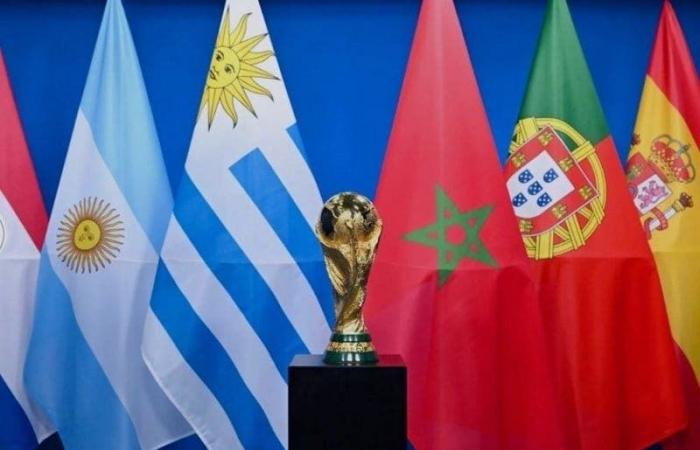FIFA is preparing for a historic virtual congress this Wednesday which will officially designate the host countries for the 2030 and 2034 World Cups.
FIFA is preparing to formalize the host countries for the 2030 and 2034 World Cups this Wednesday during a virtual congress. This decision, although requiring a formal vote, is without suspense due to the absence of competing applications. The 2030 World Cup, marking the centenary of the first edition in Uruguay, will be an unprecedented transcontinental tournament. The opening matches will take place in South America (Uruguay, Paraguay, Argentina), before the tournament continues in Spain, Morocco, and Portugal.
This choice reflects geopolitical adjustments and complex alliances, notably the integration of Morocco into the Iberian candidacy after Ukraine’s withdrawal. Saudi Arabia, for its part, obtained the organization of the 2034 edition, taking advantage of the withdrawal of Australia and Indonesia, as well as the disengagement of China.
Morocco achieved a historic breakthrough by becoming the second African country to host a World Cup, after South Africa in 2010. This success crowns decades of unsuccessful attempts and illustrates the rise of Moroccan football, already highlighted by the feat of the national team, semi-finalist of the 2022 World Cup. The country has also increased partnerships with African federations and developed a diplomatic strategy through sport aligned with its continental ambitions.
Read also: 2030 and 2034 World Cups: Candidates will be presented to the Extraordinary FIFA Congress for decision
In terms of infrastructure, Morocco is investing in ambitious projects, such as the Hassan II Stadium in Casablanca, planned to become the largest stadium in the world with a capacity of 115,000 seats. The competition will expand to six host cities requiring major renovations, including Rabat, Tangier and Marrakech. These developments are expected to stimulate economic growth and improve transport and hospitality infrastructure, including the expansion of airports and road networks.
However, the Moroccan bid to host the final faces competition from Spain, which offers iconic stadiums like the Santiago Bernabeu and Camp Nou. The decision has important symbolic significance, since it would be the first time that a World Cup final would be held in Africa.
However, these projects raise concerns. Amnesty International and Sports and Rights Alliance call on FIFA to ensure human rights protection for workers, fans and local communities. In Spain, cases of racism, like those denounced by Vinicius Junior, raise questions about the hosting of matches in this country.
In addition, the multicontinental format of the 2030 World Cup and its expansion to 48 teams pose major environmental challenges. Transcontinental travel for teams and fans risks significantly increasing the carbon footprint of the tournament. Proposals to limit this impact include regional ticket quotas, promoting fan zones and encouraging train travel.






